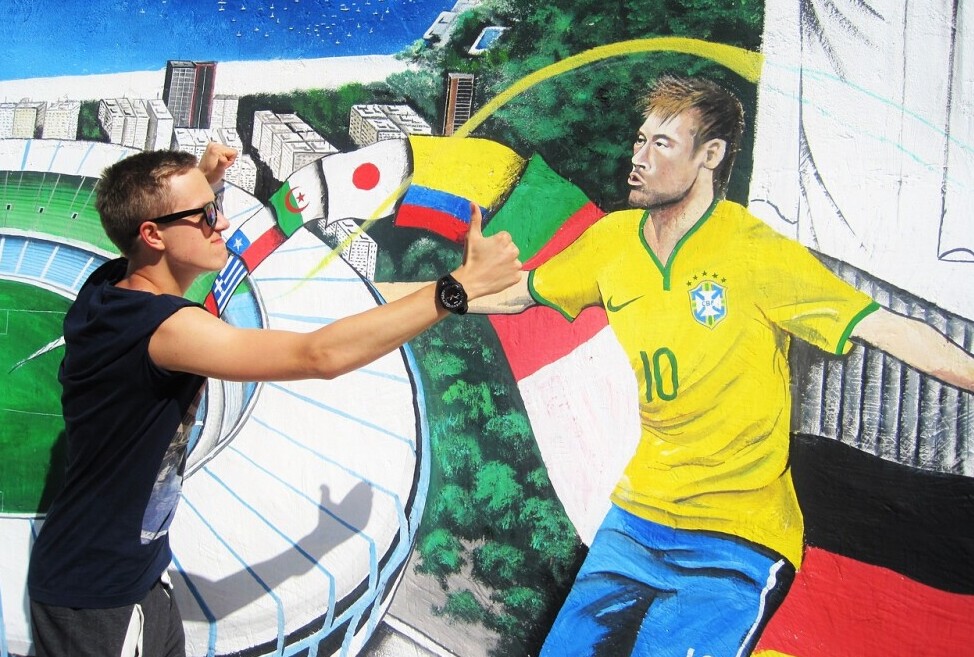
Mental conditioning in soccer is like tuning the engine of a high-performance car. It’s what keeps players sharp, focused, and ready to tackle any challenge on the pitch. Unlike the physical side, mental conditioning roots deep into the psyche, shaping how players face everything from tough opponents to those nerve-wracking penalty shootouts.
On the field, mental strength is a game-changer. It influences decision-making in split-second situations and ensures that players remain composed amidst high stakes. Ever wondered how some players manage to keep cool under immense pressure? Often, it’s not just natural talent but honed mental capabilities.
There have been countless moments in soccer history where mental conditioning has been the silent champion. Remember those match-winning goals scored at the last minute? Often, they’re the result of a player possessing nerves of steel, a trait nurtured through dedicated mental work.
A sports psychologist plays a pivotal role here. These unsung heroes equip players with the tools to channel stress, focus effectively, and maintain a positive mindset. They’re the architects behind the mental fortitude that helps players thrive, ensuring they’re not just physically but mentally prepared for every game.
Building Mental Resilience in Soccer Players
Crafting a tough-as-nails mindset is crucial in the wild world of soccer. Players who bounce back swiftly from setbacks often have mastered the art of resilience. This skill doesn’t come from sheer determination alone but from targeted mental conditioning practices that gear them up for any challenge.
In the game, resilience plays a huge role, especially when the pressure’s on. Think about those times when a player has to step up after missing an easy shot or making a mistake that leads to a goal. The ability to shake it off and come back strong often distinguishes great players from good ones. Developing this skill requires specific strategies that help players maintain their mental edge.
While physical strength gets players through the match, mental resilience is what carries them through a season’s emotional and psychological demands. A player’s ability to handle pressure, coupled with their physical prowess, creates a balanced athlete ready for anything.
Catchy personal stories from resilient players show that grit goes beyond just talent. Legends in the game who came back from a rough patch often attribute their comeback to mental toughness. Their journeys offer valuable lessons on enduring stress and emerging stronger.
Getting resilient isn’t about working hard physically; having the right mental conditioning toolkit is key. Techniques like mindfulness and reframing negative thoughts can build mental fortitude and ensure players are always game-ready, no matter the circumstances.
Visualization and Imagery for Enhanced Performance
Visualization might sound a bit mystical, but it’s a powerful tool for soccer players. By creating detailed mental images of their actions on the field, players can improve their performance even before they set foot on the pitch. It’s about rehearsing success in the mind, which in turn boosts confidence and execution during actual play.
To harness this technique, players begin by relaxing and picturing themselves in specific game situations. This could mean seeing oneself scoring a goal, making a great pass, or even defending against a top opponent. Each mental scene should be as vivid as possible, engaging all senses to make the experience feel real and tangible.
Imagery isn’t reserved just for the superstars of soccer. Many pros from all levels find strength in this practice. Their secret often involves not just seeing themselves succeed but also feeling the emotions attached, from the rush of adrenaline to the joy of scoring. These emotional connections make the images more powerful and effective.
Scientifically, there’s a nifty explanation behind why visualization works. When players visualize, their brain sends signals similar to those that occur during physical execution. This mental rehearsal strengthens neural pathways, enhancing actual performance and creating a sense of familiarity with success.
Integrating visualization into training routines doesn’t have to be complicated. Players can practice imagery on their own or with guidance from a seasoned sports psychologist. By dedicating a few minutes each day to mental imagery, soccer players set themselves up for success—priming their minds to anticipate and navigate the demands of the game with finesse.
Overcoming Common Mental Barriers
Every soccer player, no matter how seasoned, faces mental barriers that can disrupt their game. Recognizing and tackling these obstacles head-on is crucial for maintaining peak performance and enjoying the sport fully.
Common hurdles like anxiety and performance pressure often creep up during critical matches. These feelings, though natural, can block clear thinking and quick decision-making on the field. Acknowledging them as part of the game is the first step towards managing them effectively.
Simple yet effective strategies exist for overcoming these pressures. Breathing exercises and mindfulness practices act as anchors, helping players stay grounded even in the most intense moments. These techniques serve to calm nerves and bring focus back to the task at hand.
The fear of failure looms large for many, but perfectionism shouldn’t overshadow the joy of playing. Players can work towards letting go of the fear by setting realistic goals and reminding themselves that mistakes are just learning curves. Embracing imperfections can free them to play more creatively and confidently.
A player’s support network plays a massive role in navigating these mental barriers. Coaches, teammates, family, and friends can offer both encouragement and practical advice. Knowing there’s a solid support system present allows players the courage to tackle challenges with a lighter heart and a clearer mind.
Creating a Personalized Mental Conditioning Plan
Crafting a mental conditioning plan personalized for each soccer player is like tailoring a suit—it needs to fit just right. No two players are the same, so their mental strategies need to reflect their unique personalities, strengths, and challenges.
Starting with a self-assessment helps players pinpoint the areas they want to target. Whether it’s building confidence, focusing under pressure, or handling stress, identifying these goals sets the stage for a focused plan.
Once the player knows what they’re aiming to achieve, it’s time to put strategies into action. Incorporating a mix of visualization, mindfulness, and resilience-building exercises ensures a well-rounded approach. Consistency is key here, so daily attention to these practices makes a big difference.
Keeping track of mental progress through journaling or self-reflection offers insights into what’s working and what might need adjustment. A player who actively monitors their mental conditioning can tweak their plan, ensuring it evolves along with their game.
Collaboration with coaches and sports psychologists enhances the plan further. These professionals provide valuable feedback and additional resources, helping players stay on course. They’re there to ensure players have the mental edge they need to perform their best each time they hit the field.

The way you emphasized the importance of mental resilience in the game brought back memories of my own experiences on the field. I remember times when I faced immense pressure during matches, and it was my mental training that helped me push through and perform at my best.
Your insights about techniques like visualization and positive self-talk are spot on. I’ve found that taking a moment to visualize a successful play before executing it can really change the game for me. It’s fascinating how our minds can influence our performance so significantly!I’m curious, have you ever experimented with any specific mental exercises or routines that you found particularly effective? It would be great to hear more about your personal experiences in this area! Thank you for sharing such valuable information; it’s a reminder that the mental game is just as crucial as the physical one in soccer.
yes ,it is indeed